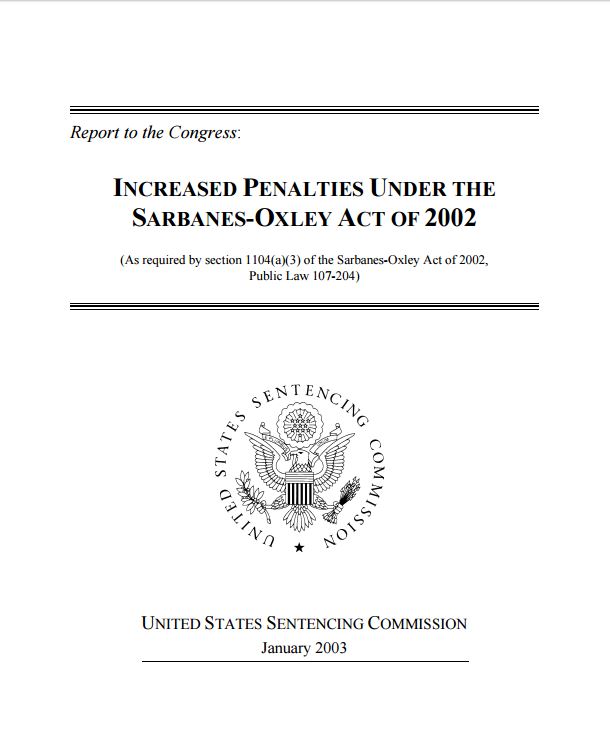Summary

Key Actions
- The Commission worked diligently in the abbreviated 180 day period to implement these emergency directives and significantly increased guideline penalties as directed by the Act. These penalty increases were incorporated into the existing sentencing guideline structure under §2B1.1.
- In response to the congressional directives, the Commission modified §2B1.1 to account more adequately for the significant impact such offenses have on victims. The Commission also significantly modified §2J1.2 to reflect congressional concern regarding obstructive conduct, particularly document destruction.
- To further account for the adverse victim impact of these offenses, the Commission added a new sentencing enhancement applicable to offenses that endanger the solvency or financial security of a substantial number of victims. The impact of these victim related enhancements is substantial.
- The amendment targets offenses committed by officers or directors of publicly traded companies for especially severe penalties because of statutory fiduciary duties imposed upon such individuals. Also addresses offenses that cause catastrophic economic losses of magnitudes previously not anticipated, such as the serious corporate scandals that gave rise to several portions of the Act.
